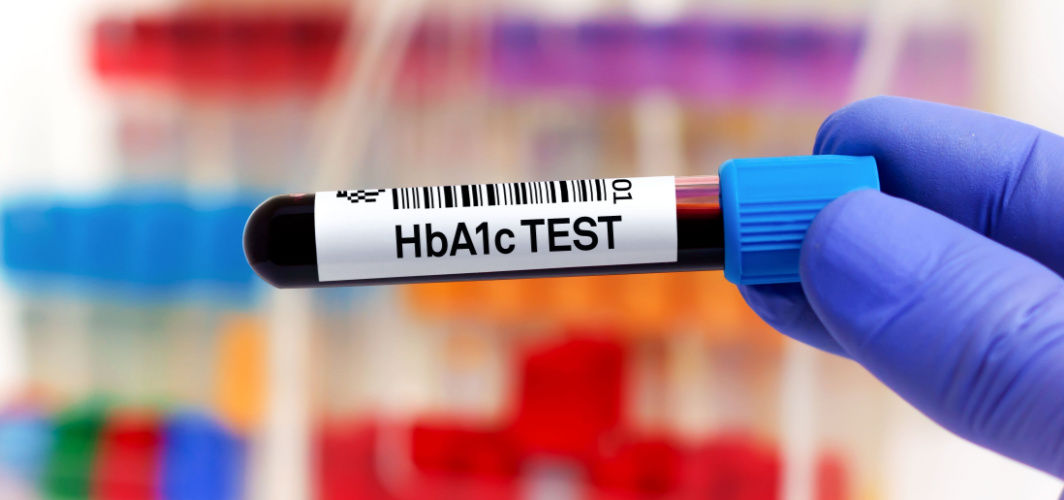Diabetes Management
What Should You Consider Before Alcohol Intake in Diabetes?
2 min read
_0.jpg?tr=q-80)
Alcohol consumption requires careful consideration for individuals with diabetes due to its potential impact on blood glucose levels and overall health. While moderate alcohol consumption may be permissible for many, several factors must be taken into account to ensure responsible and safe drinking.
1. Blood Glucose Monitoring
Before consuming alcohol, individuals with diabetes should check their blood glucose levels. It's crucial to ensure levels are within the target range. Alcohol can interfere with glucose regulation, so starting with stable blood glucose levels is essential.
2. Moderation is Key
Moderation is paramount for individuals with diabetes. Excessive alcohol intake can lead to hypoglycemia (low blood sugar) or hyperglycemia (high blood sugar). The American Diabetes Association recommends limiting alcohol intake to one drink per day for women and two drinks per day for men.
3. Choose Low-Carb Options
Opt for drinks that are lower in carbohydrates. Light beer, dry wines, and distilled spirits with sugar-free mixers are better choices as they have a less pronounced impact on blood sugar levels.
4. Be Mindful of Mixers
Mixers can significantly contribute to the overall carbohydrate and calorie content of a drink. Choose sugar-free or diet mixers to minimize the impact on blood glucose levels.
5. Timing Matters
Consuming alcohol on an empty stomach can lead to a more rapid spike in blood sugar levels. Eating a balanced meal or snack before drinking can help mitigate this effect.
6. Hydration is Crucial
Alcohol can contribute to dehydration, which may exacerbate the risk of hypoglycemia. Staying well-hydrated is essential, especially if alcohol is consumed.
7. Be Aware of Medication Interactions
Certain diabetes medications, especially insulin and sulfonylureas, can interact with alcohol, potentially leading to hypoglycemia. It's important to consult with a healthcare provider to understand how medications and alcohol may interact.
8. Monitor Symptoms
Individuals with diabetes should be vigilant for symptoms of hypoglycemia, such as shakiness, dizziness, or confusion. If these symptoms occur, prompt action, such as consuming a fast-acting carbohydrate, is crucial.
9. Inform Others
It's advisable for those with diabetes to inform friends, family, or companions about their condition and the potential need for assistance in case of a diabetes-related emergency.
10. Regular Health Check-ups
Regular check-ups with healthcare providers are essential for individuals with diabetes. They can assess the overall impact of alcohol consumption on health and adjust treatment plans accordingly.
Conclusion:
While moderate alcohol consumption can be compatible with diabetes management, responsible choices and awareness of individual factors are crucial. Consulting with healthcare providers, monitoring blood glucose levels, and making informed decisions about the type and amount of alcohol consumed contribute to a balanced and healthy approach to alcohol intake for individuals living with diabetes.
You can also try the Apollo 24|7 Diabetes Self-Management Tool to log your sugar values, track patterns, know all about food nutrition and more.
Diabetes Management
Consult Top Diabetologists
View AllLeave Comment
Recommended for you

Diabetes Management
How To Bring Down The HbA1c Level?
To lower the HbA1c levels, diabetics should dollow a diet with low glycemic index foods and manage portion sizes. They should engage in regular exercise to manage weight and improve insulin sensitivity. Diabetics should also consume a fiber-rich diet to regulate blood sugar levels. Besides, taking prescribed oral hypoglycemic medications and monitoring blood glucose levels at home can bring down HbA1c levels.
.jpg?tr=q-80)
Diabetes Management
Can Skipping Meals Cause Diabetes?
Skipping meals might seem like a harmless habit but it can lead to several health issues, including an increased risk of developing diabetes. Maintaining a regular meal schedule and consuming balanced meals can help stabilise blood sugar levels. For those needing guidance, programmes like the Apollo Super 6 offer personalised support to manage or prevent diabetes through lifestyle changes.
.jpg?tr=q-80)
Diabetes Management
Best Sauces for Diabetics: Savouring Flavours, Nurturing Health
Dealing with diabetes doesn't mean bidding farewell to flavourful food! Choosing diabetic-friendly sauces can help manage blood sugar levels and satisfy your taste buds. Mustard, homemade sauces, or olive oil are some of the best choices. Remember, moderating consumption is key to balancing taste and health. Want more control over diabetes? Discover the personalized support of the Apollo Super 6 program by enrolling in it today.
Subscribe
Sign up for our free Health Library Daily Newsletter
Get doctor-approved health tips, news, and more.
Visual Stories

8 Fruits That are Incredibly Healthy for Diabetes
Tap to continue exploring
Recommended for you

Diabetes Management
How To Bring Down The HbA1c Level?
To lower the HbA1c levels, diabetics should dollow a diet with low glycemic index foods and manage portion sizes. They should engage in regular exercise to manage weight and improve insulin sensitivity. Diabetics should also consume a fiber-rich diet to regulate blood sugar levels. Besides, taking prescribed oral hypoglycemic medications and monitoring blood glucose levels at home can bring down HbA1c levels.
.jpg?tr=q-80)
Diabetes Management
Can Skipping Meals Cause Diabetes?
Skipping meals might seem like a harmless habit but it can lead to several health issues, including an increased risk of developing diabetes. Maintaining a regular meal schedule and consuming balanced meals can help stabilise blood sugar levels. For those needing guidance, programmes like the Apollo Super 6 offer personalised support to manage or prevent diabetes through lifestyle changes.
.jpg?tr=q-80)
Diabetes Management
Best Sauces for Diabetics: Savouring Flavours, Nurturing Health
Dealing with diabetes doesn't mean bidding farewell to flavourful food! Choosing diabetic-friendly sauces can help manage blood sugar levels and satisfy your taste buds. Mustard, homemade sauces, or olive oil are some of the best choices. Remember, moderating consumption is key to balancing taste and health. Want more control over diabetes? Discover the personalized support of the Apollo Super 6 program by enrolling in it today.



